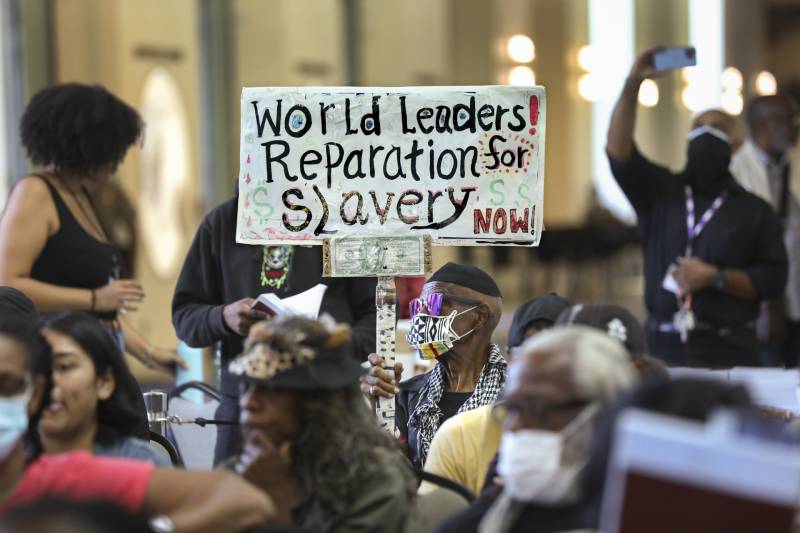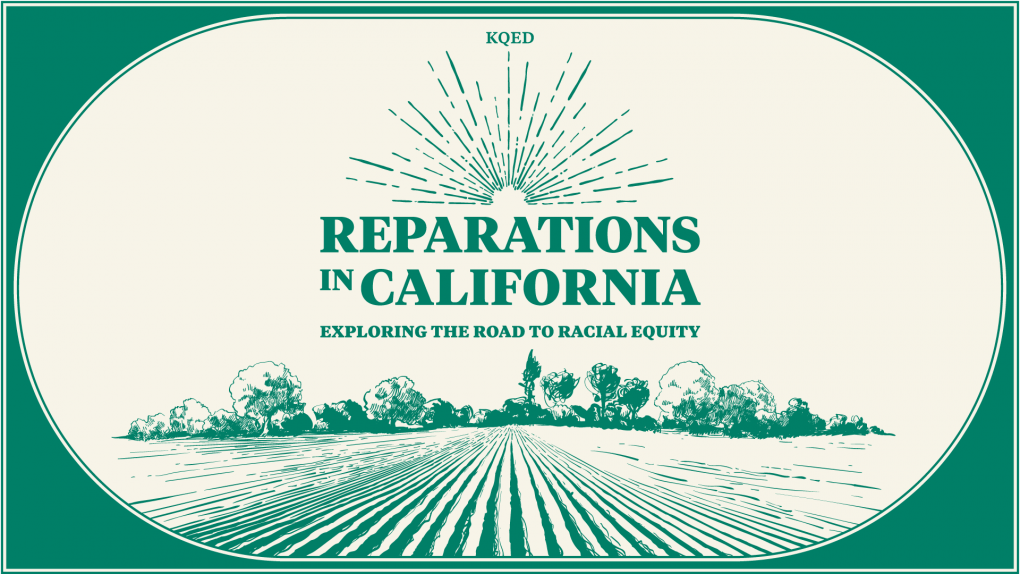At the task force meetings over the last two years, non-Black audience members have been rare, but Brown argues that non-Black Californians should be paying attention. According to the 2020 census, Black residents make up less than 6% of the state’s population. If the task force’s expansive proposals are to become law after they arrive in the Legislature, they will require broad-based support from California residents across racial groups.
Brown says providing reparations to communities can restore some legitimacy to democratic governments in places where inequity has caused disillusionment and distrust. In doing so, he suggests, reparations can strengthen democracies, offering a potential benefit to all Californians.
As part of our Juneteenth reparations radio takeover, I spoke with Brown about the role of reparations in democracies.
This conversation has been edited for brevity and clarity.
Annelise Finney: In a recent op-ed in The Sacramento Bee, you wrote that paying reparations to the descendants of American slavery is a question of political responsibility. Can you explain what you mean by that?
Mark Brown: It’s a way of saying that reparations is not about individual guilt. You can only be guilty for things you have done yourself, and nobody alive today is personally guilty of enslaving anyone [as part of American chattel slavery]. So talking about reparations as a matter of political responsibility is a way of saying that it’s a shared, collective responsibility. And it’s a way of talking about taking responsibility for the wrongs committed by the government that represents us.
I think it’s useful to see reparations as part of democratic citizenship, similar to paying taxes or voting and so on. We get various benefits from being citizens — we have roads, bridges, the sewage system, schools, parks and so on — and so we need to also accept the shared burdens that come with those benefits. It would be unfair to only take the benefits and refuse the burdens.
How do you understand the role of paying reparations to harmed groups in democracies generally?
In a democracy, it’s important for governments to take account of public opinion, and that’s one of the biggest challenges for reparations at the moment. A survey last fall found that public support for reparations is about 30% nationwide, which is actually more than double what it was two decades ago. But it’s still far from a majority. A more recent poll in California finds that it’s somewhat higher, perhaps even a lot higher. But in any case, it’s important for, on the one hand, politicians to engage with the public and take seriously public concerns about reparations and public skepticism.
But also democracy does not mean that governments do exactly what the people want. It’s very common for political representatives to attempt to persuade their constituents and make attempts to change public opinion on issues that matter. A really good example of this is the history of reparations in Germany, when Germany paid reparations for the Holocaust to the state of Israel and to individual Jewish survivors. The majority of the public was actually opposed and it took a long time and a lot of work by political leaders and activists to change public opinion. Thirty years later, Germany was widely seen as a real model for developing a culture of memory and for really integrating efforts to remember the Holocaust and teach about it into German culture and German national identity.

